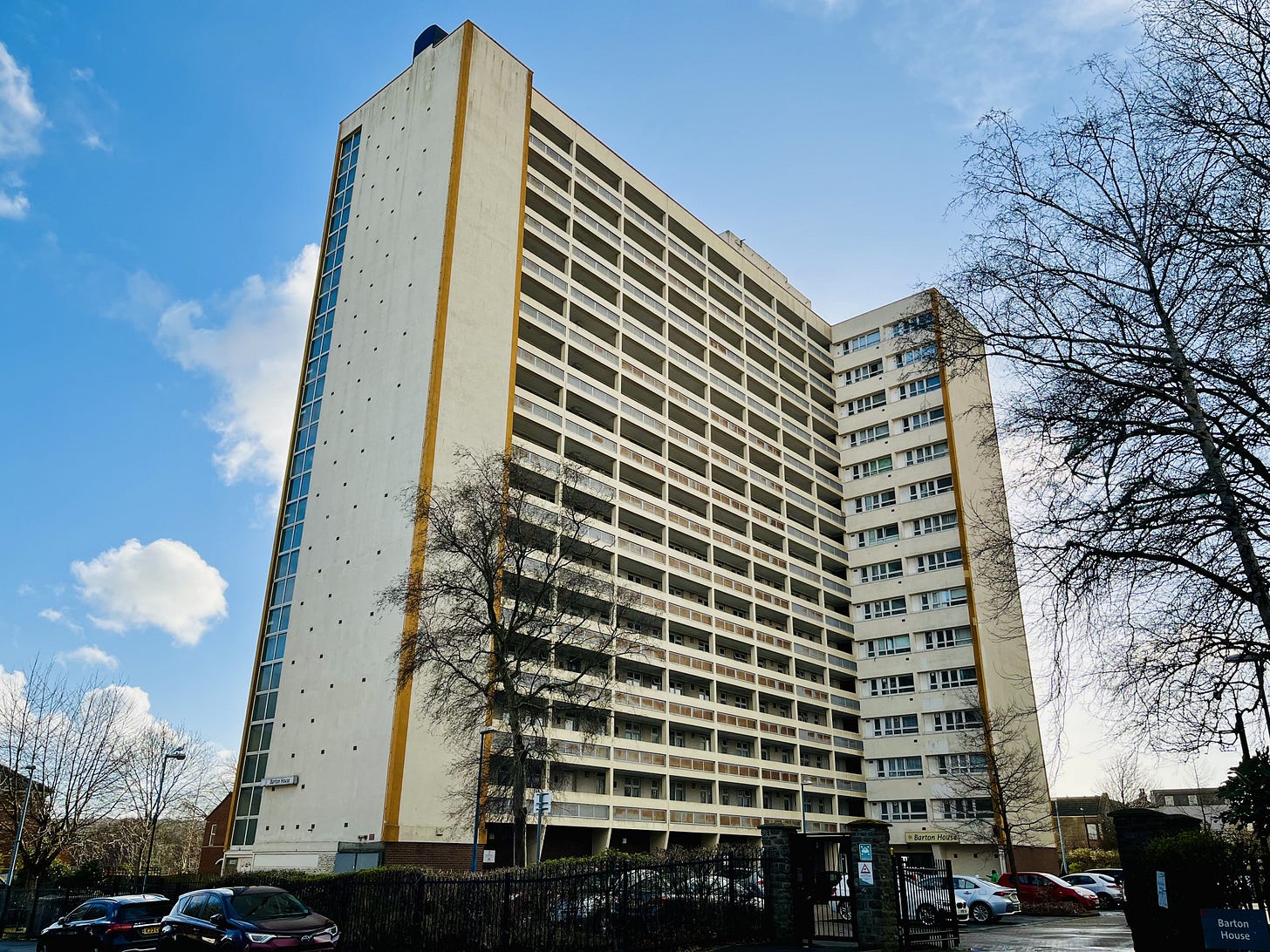The social housing tenants left traumatised by decades of neglect
Bristol City Council is one of many local authorities with thousands of tenants in mouldy flats and a £2.2bn black hole in housing budgets is expected by 2028, reports Matty Edwards
“There are kids who have breathing problems because of the damp in these flats. I've not had working heating for 16 years. My son was born in February – it was bloody freezing.
“The majority of us are still traumatised to this day. Ask how many people have slept through a whole night since we came back…”
Yasmin is one of the residents of Barton House, a Bristol council-owned tower block that was evacuated in November 2023 amid fears the building could collapse. Residents had to live in hotels for months until the 14-storey block was deemed safe, but now nearly 18 months on, many residents are still struggling with the aftermath.
Yasmin shared her story at a recent event organised by community union ACORN and campaign group Medact, who have compiled a report on the devastating health impacts of the evacuation and poor living conditions. The Barton House case reveals serious failings by Bristol City Council, but also the ongoing effects of living in damp, cold and mouldy council homes.
Bristol is one of a number of local councils that was judged to be failing its residents by the Regulator for Social Housing [RSH] last year. But the authority is also fighting an uphill battle to build new social homes for the 22,000 people on its housing waiting list.
The pressure to simultaneously improve current homes while building new ones is pushing council housing budgets to the brink. Local council incomes have been decimated over the last decade, leaving a looming deficit of billions of pounds – prompting calls for urgent reforms for how social housing is funded in this country.
The findings of the joint report by ACORN and Medact showed how the council is not only failing to tackle damp and mould, but how the shortage of social housing makes it incredibly hard for residents to be rehoused, even when medical evidence shows their home is damaging their health.
“How are you not ashamed of yourselves? If something happens to my daughter, I will hold you all responsible.”
Medact doctors laid bare their findings through powerful residents testimonies, sharing how “the evacuation and its aftermath had a profound and lasting impact on their physical and mental wellbeing”, which was worsened by “long-standing issues of poor-quality and unsafe housing, including cold, damp and overcrowding”.
The council apologised – for the first time – for its handling of the evacuation, committed to an independent investigation and a plan of action within a month, which could include Barton House residents being prioritised for rehousing.
But some residents said action wasn’t urgent enough.
One mum spoke passionately at the meeting about worries for her daughter’s health: "I have to listen to my six month old daughter struggle to breathe in that building every single night. You've had a doctor's note saying it's because of the damp and the mould in my flat.
“The current system is not sustainable, and it is crucial that the government acts now to protect the future of council housing.”
“We're still on band 3 [low priority for rehousing], it's disgusting. How are you not ashamed of yourselves? If something happens to my daughter, I will hold you all responsible.”
A month after the report was published, the council issued its response, announcing a citywide consultation on giving tenants priority for rehousing due to the impact of unforeseen circumstances or emergencies, and committing to an independent review of the handling of the evacuation. The authority's response reiterated its apology to Barton House residents, and offered in-person meetings about rehousing applications, but rejected the recommendation that tenants be financially compensated for their ordeals.
There has been greater awareness of the dangers of mould since the death of two-year-old Awaab Ishak in 2020 as a result of the mould in his housing association flat. Awaab’s Law is coming into force in October this year, which will force social landlords to fix dangerous damp and mould within a set time and repair all emergency hazards within 24 hours.







